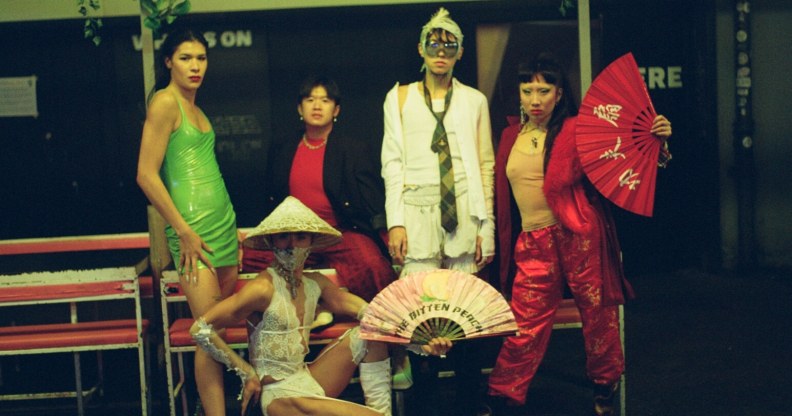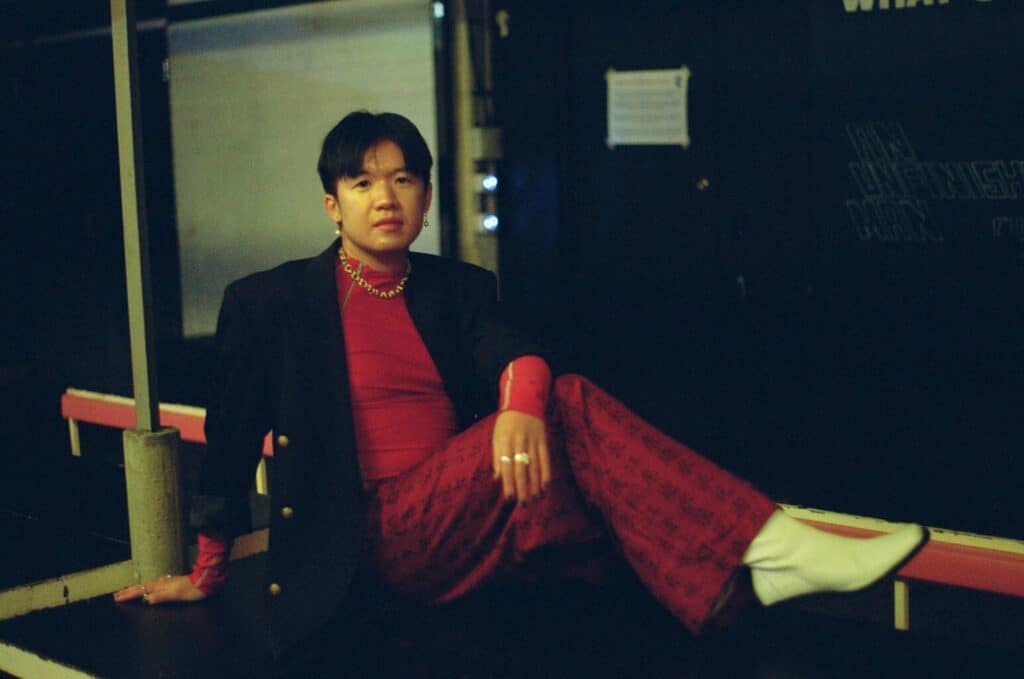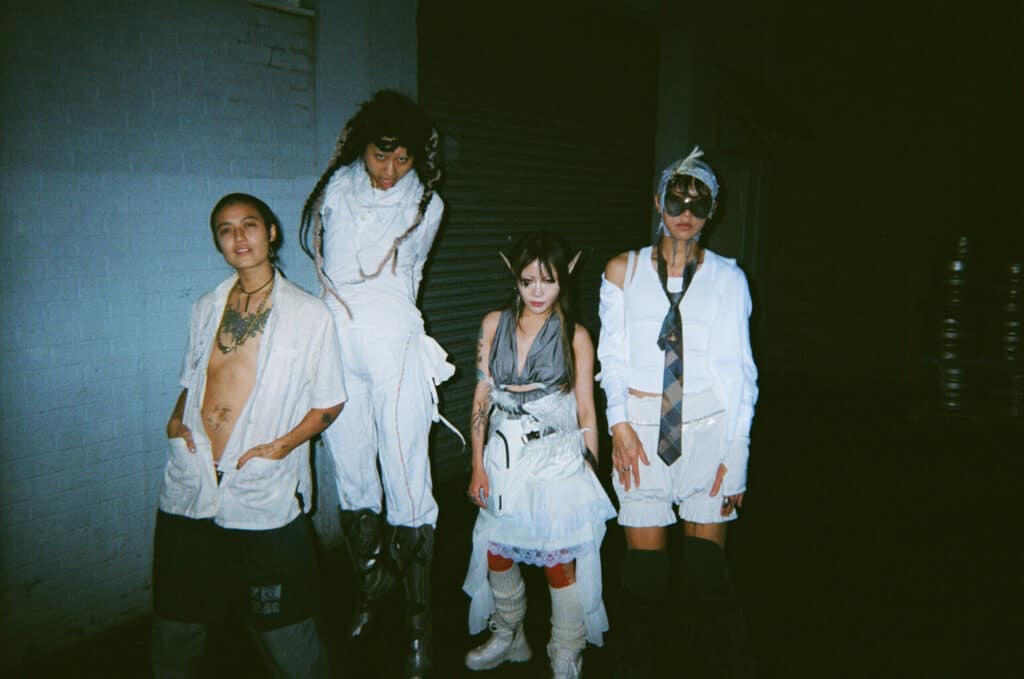Meet the LGBT+ East and Southeast Asian club night queering Lunar New Year

For June Lam, running a queer club night for Lunar New Year represents an important chance to “stop everything, dance and be connected to our cultures”.
Lunar New Year is one of the most important celebrations in many East and Southeast Asian cultures.
But while it’s common for LGBT+ venues to host New Year’s Eve parties on 31 December each year, queer Lunar New Year events are a rarity. Indeed, while there are many spaces that centre either LGBT+ or Asian identities, it’s rare to encounter intersectional spaces that revolve around both.
“There is no sort of existing space in London for us to come together and dance,” June Lam, founder of queer club night GGI, tells PinkNews. It means feeling torn, that although there are spaces welcoming one aspect of who he is, “I can’t bring other parts of my identity”.
June’s night, GGI (pronounced ‘kee’), is billed as London’s first club night celebrating queer East and Southeast Asian (ESEA) communities, an “outlet where you know that you can bring your whole self as an ESEA queer person”.
“I wanted a space that I haven’t been able to have access to, as a trans East Asian person who’s bisexual, femme, queer, all of my identities, kinda feels like they’re a bit fragmented,” he says.

Photo credits: Ella Frost
After debuting in December 2021, GGI is returning on 4 February, the first Friday after the Lunar New Year.
Traditionally, celebrating Lunar New Year involves big family gatherings and lots of delicious food. However, queer folk can face unique social pressures during festivities, whether that’s the social expectation of being in a heterosexual relationship or having to endure being misgendered by relatives.
June emphasises that GGI is an “outlet where you know that you can bring your whole self as an ESEA queer person”.
“Our ancestors have been celebrating the new year for thousands and thousands of years. And so it’s really important to take up that space.”
For him, running a queer, ESEA club night “is very much about believing in chosen family as important and trying to create that [space] for other people that might need it”.
Hosting a community space is particularly important, especially given that the past year has been a particularly difficult one for the LGBT+ and Asian communities.
According to reports, 2021 has been the most deadly year on record for trans people and there has been a spike in attacks against East and Southeast Asian communities in the West, including the Atlanta shootings which took place last March.
As a consequence of these tragedies, June reflects: “There’s just been a lot of sadness in the community.”
Fighting against racism and transphobia is often an “uphill struggle”, as June explains: “As trans people, we get really worn out because we’re fighting against much more resourced people than us.”
June recalls his optimism about the possibility of change when he first came out, and the “depressing” transphobia and pushback that followed.
“When I first came out as trans, all of the really exciting campaigns around the GRA (Gender Recognition Act) reform were happening, [and I was] getting really excited about this, and it’s been three and a bit years and nothing has happened. No reform has happened. The GRA is exactly the same as it was.”
Despite widespread public support for reforming the GRA, the British government scrapped plans for any meaningful reform in 2020. The trans community continues to experience discrimination and barriers, whether in trying to access healthcare or in the workplace.
Given the struggles faced by marginalised communities, it was important for June to create spaces centred around joy and celebration where queer Asians could “come together and dance”, alongside activist spaces.
Tackling fetishisation
From showcasing queer Asian talent, to discouraging cultural appropriation, it’s clear that GGI was designed to be a space of joy and community away from the fetishisation and discrimination that still persists in some queer nightlife spaces.
Within the ESEA community, June has witnessed people becoming more vocal about resisting fetishisation and cultural appropriation. As he explains: “We’re taking up space by asserting that we don’t want that kind of fetishisation and that we won’t tolerate it.”
June’s concern is that these conversations are not happening elsewhere “in mainstream white spaces”. While it is unlikely things will change overnight, June hopes that greater media coverage highlighting the issues will prompt people to reflect.
Slow and sustainable progress would be the best option for June, as he is wary of mainstream venues simply virtue signalling without deeper consideration for minority groups.
Given the prevalence of fetishisation, it is important for there to be mindful spaces such as GGI. However, the costs of setting up new club nights can often be prohibitively expensive. “A lot of people from marginalised communities aren’t able to set up their own spaces because there’s too much overhead” June says.
Luckily, GGI was awarded funding from the Night Drafts programme at The Yard, which provided funding for three new nightlife projects centring around marginalised communities. When June saw the opportunity, he “already had the idea in mind” so the project “came together really fast”.

Photo credits: Ella Frost
GGI’s Lunar New Year night
Showcasing queer, Asian talent has been a central part of GGI’s foundation, whether it’s through films, music or performances. The night will kick off with a takeover of Eastern Margin’s NTS show at 8pm featuring a live DJ sets by Chooc Ly Tan and LARASATI, as well as a discussion between June Lam and Juni da Moment/ Ms. G, where they will talk about the importance of nightlife spaces for queer Asians. After GGI’s radio takeover, the clubnight will begin at 9pm at The Yard Theatre in Hackney Wick, east London.
GGI’s Lunar New Year party will offer an exciting line-up of performances, including a mix of local Londoners and international artists from accross the Atlantic. DJ sets by Lindrum, Clarity and LARASATI will feature an eclectic range of music, including techno, industrial, deconstructed decolonial club and gabber. The host will be Londoner June Bellebono, who is also the founder of oestrogeneration, an online magazine highlighting the voices of trans women and transfeminine people. Performances will be given by musician YaYa Bones and American multidisciplinary artist ZAH.
A special feature of GGI’s Lunar New Year Party will be the pan-Asian snackbar, where guests can exchange a pound for a classic Asian treat, such choco-pie and hello panda biscuits. The snack bar will provide a quieter, more relaxed time of the evening where people can ease into the night without feeling pressured to socialise or dance straight away, especially for newcomers.
June reflects that “the Night Drafts funding is a time limited project with three nights, but I want GGI to have longevity beyond that… I just kind of want to put the energy out there that we really want to go and expand, and for people to reach out to me if they feel like they have ideas to offer.”
You can follow GGI on Instagram @ggi.club and tickets for the Lunar New Year club night (4 February) are on sale at The Yard.

